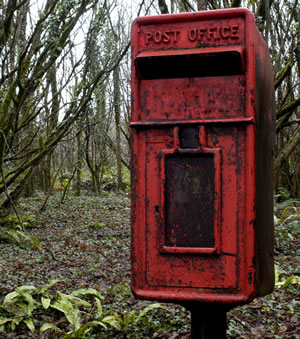Self-Care in Times of Crisis
In January this year I was due back at work on Wednesday 7th, after a two-week break for Christmas and New Year. In my experience so far in private practice the appointment diary is very busy after any holiday, especially Christmas. However, that Wednesday 7th, Thursday 8th and Friday 9th January 2015 – while terrorist shootings were taking place in France – there were many cancelled appointments and rescheduling requests from clients instead.
Last Friday 13th November 2016, more attacks were carried out in France which were covered extensively on the news here all weekend. The following week, Monday 16th to Friday 20th November the rate of clients cancelling therapy sessions was even higher than in January after the 7th – 10th January terrorism.
This leads me to reflect on a link between witnessing trauma in the neighbouring country of France, and the high rate of client cancellations in the following days. The Paris terror attacks can indirectly affect even those who did not have family and friends living in or visiting Paris that weekend. The indirect effect includes a heightened awareness that an attack can happen for reasons only the person carrying out the terror attack need know. The reasons people attend therapy include anxiety, hopelessness, isolation, stress, grief. For anyone already struggling in their day to day, these terror attacks in a neighbouring country can be debilitating.
I empathise with clients who experienced greater anxiety, emotional upheaval and distress after the attacks in Paris. Of course we in Ireland can be so affected by these unexpected, organised attacks so close to our own country, and in a city so beloved as a weekend or holiday destination. That as I write Brussels is in lockdown as the search for terrorists continues, adds to a feeling of uncertainty and unease. That is part of the point of terrorism – to unsettle a populations belief in the safety of their society and their daily routines, and to create fear.
Our self-care can quickly and easily slip into lower priority in times of great stress and what seem like times of survival. At times of crisis, internal or external, self-care habits and routines can seem indulgent, a waste of time and a waste of money. It is when we are experiencing emotional and psychological distress that we benefit from sticking to our self-care routines wherever possible. If we can create and develop a practice of self-care habits when feeling well, it also makes it easier to reach for these tools in times of crisis and come back from despair and fear.
An approach I take in dealing with anxiety and depression, is to see the individual as operating on the physical, mental, emotional and spiritual levels. We can help these complementary aspects of ourselves stay in harmony. Basic examples of tending to our holistic wellness are shown below:
To start, I look at the physical self in terms of diet, alcohol, drugs prescribed and unprescribed, and exercise. For example, aerobic exercise where you work up to perspiration, is a helpful tool in reducing levels of anxiety carried in the body.
The mental self deals with our thoughts, and where we direct our attention. When we are anxious, we are preoccupied with anxious thoughts about what can go wrong, where is the next threat coming from and so on. One way to alleviate these anxious thoughts is first to develop the habit of noticing your thoughts. If you are having anxious thoughts, interrupt this cycle by asking if your thoughts are based in fact, what is the evidence. Then ask yourself what steps you could take to cope if your anxious thoughts came to fruition; is this something you need to worry about today. Then thank the anxious thought for trying to warn you about a perceived danger (even if it is exaggerating), and direct your attention consciously onto a positive, for example something you are looking forward to, or direct your attention simply to noticing your breath and so ground yourself in the present.
The emotional self of course deals with our emotional state each day. Part of promoting our emotional well being is to develop the practice of gratitude – start by listing three to five things about each day that you can be grateful for (however small, however trivial they may seem at first), and three to five things you can be proud of about yourself each day (however small, however trivial these may seem).
The spiritual self includes our sense of whatever it is that links us to something greater than ourselves. For some people that is in belonging to and serving a community, for others it is a feeling of connection with their understanding of a God. Spirituality can be felt in moments of joy, connection, a sense of purpose, and creativity – and through becoming tuned into that ever-present observer that resides calmly in all of us.
We can pay attention on a daily basis to maintaining our wellness. By focusing our attention of becoming well, we are providing a counteraction to fear and hatred that terrorism is trying to increase in our world. We can also make a commitment to ourselves to seek help when we are shaken, make a positive connection, get support and support others in turn.

